Behind-the-scenes alert system ‘another set of eyes’
Our Advance Alert Monitor program uses predictive analytics to address serious complications before they happen. It earned an award for quality and patient safety.
Erin Fowler-Jones, shown with her husband and 3 adult children, received the medical attention she needed thanks to the Advance Alert Monitor program.
As a neonatal intensive care nurse for 39 years, Erin Fowler-Jones knows what exceptional care looks like. When she arrived at a Kaiser Permanente emergency department in Northern California because of a worsening foot infection, she was impressed by the attention and care she received.
“From the first night I was admitted through the next day,” she recalled, “I had staff constantly coming by, monitoring my condition, and making sure that I was OK.”
What Fowler-Jones didn’t know was that in addition to her care team frequently visiting her, our award-winning Advance Alert Monitor program was also hard at work ensuring her health and safety.
An early warning system
Advance Alert Monitor is an advanced program that helps prevent emergencies in the hospital before they happen. Every hour, the program automatically analyzes hospital patients’ electronic health data. If it identifies a patient at risk of serious decline, it sends an alert to a specialized virtual quality nursing team which then reanalyzes the data to determine what level of on-site intervention is needed.
To predict which patients are likely to decline — meaning they might soon need emergency resuscitation or need to be transferred to the intensive care unit — the program uses a powerful analytical engine that takes into account many patient factors. These factors include laboratory test results and vital signs, such as heart rate, blood pressure, and body temperature.
“It takes a team approach to ensure the patients are well cared for by intervening early and providing the appropriate medical treatment,” said Vanessa Martinez, DNP, RN, director of Virtual Nursing Care at Kaiser Permanente in Northern California.
Gabriel Escobar, MD, a research scientist at Kaiser Permanente and lead author of a New England Journal of Medicine study on the Advance Alert Monitor, recognizes that alert systems are nothing new to hospitals but says this program is different.
“What is unique about AAM is that it is not just a sophisticated statistical model,” Dr. Escobar said. “Rather, it is an integrated system that links accurate and timely risk estimates with a health care team that includes physicians and nurses who combine the predictions with carefully defined workflows.”
The program uses that data along with learnings from the more than 1.5 million patient records in our electronic health record system to assign each patient a score. When a patient’s score rises above a certain level, an alert is sent.
“Kaiser Permanente is able to power Advance Alert Monitor due to our vast electronic health record system,” Dr. Escobar said. “With all that data, the program can produce very accurate patient risk scores.”
Saving lives behind the scenes
Fowler-Jones had no idea her condition had triggered an alert, or that a behind-the-scenes team was carefully monitoring her condition. But she’s thankful for it — Advance Alert Monitor may have saved her life.
“I just knew that my doctor’s focus was on my health and that I was carefully being watched,” she said. “It was an overwhelming relief to me.”
Advance Alert Monitor has been providing peace of mind to Kaiser Permanente patients and families since it first started rolling out in Northern California hospitals in 2015. It’s now used at all 21 of our hospitals in Northern California.
The recent Advance Alert Monitor study published in the New England of Journal Medicine found that the system was responsible for preventing 520 deaths per year over a 3-and-a-half-year study period. It also showed a lower incidence of ICU admissions and shorter hospital stays.
Recognition for improving quality and patient safety
Advance Alert Monitor recently earned the Austco Excellence Award for Quality and Patient Safety at the 2021 International Hospital Federation Awards.
“Advance Alert Monitor reflects our commitment to providing the safest care possible by leveraging advances in data and science technology,” said Andy Bindman, MD, executive vice president and chief medical officer at Kaiser Permanente. “Because of this program, we are identifying patients who need immediate attention, intervening early, and providing the high-quality, exceptional care that our patients and families deserve.”
Because Fowler-Jones’ care teams responded quickly to her condition, she was treated appropriately and within a few days was well enough to return home.
“Advance Alert Monitor is an amazing idea,” she said. “It’s like another guardian, and sometimes all you need is another set of eyes watching over you.”
-
Social Share
- Share Behind-The-Scenes Alert System ‘Another Set of Eyes’ on Pinterest
- Share Behind-The-Scenes Alert System ‘Another Set of Eyes’ on LinkedIn
- Share Behind-The-Scenes Alert System ‘Another Set of Eyes’ on Twitter
- Share Behind-The-Scenes Alert System ‘Another Set of Eyes’ on Facebook
- Print Behind-The-Scenes Alert System ‘Another Set of Eyes’
- Email Behind-The-Scenes Alert System ‘Another Set of Eyes’
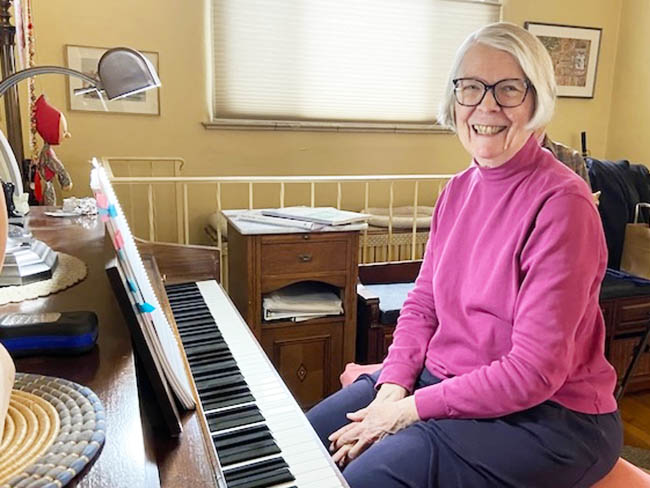
May 19, 2025
Member praises 50 years of collaboration with care teams
Karen Hansen’s doctors and clinicians have partnered with her to customize …

May 15, 2025
Employee honored for bridging tech gaps in communities
Kevin L. Hart wins the 2025 George Halvorson Community Health Leadership …

May 7, 2025
How to cope with anxiety after childbirth
As a new mother, Cherissa Ong was overwhelmed by stress. A mental health …

May 6, 2025
Best maternity hospitals: We have 29 of them
Our high-quality, compassionate care landed us on Newsweek’s 2025 list …

April 30, 2025
From fighter to father: How addiction care changed his life
Travis Taylor has substance use disorder and mental health conditions. …
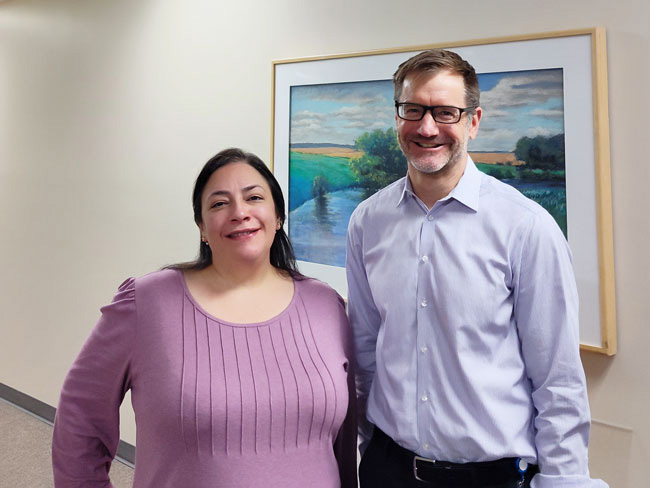
April 25, 2025
Treating the heart and lungs together for a rare disease
With her medical teams working together, Sirina Hazeem is getting her life …

March 27, 2025
Living proof: Colon cancer highly treatable if caught early
There is an alarming rise in colon cancer rates among younger adults. Cynthia …

March 25, 2025
Named best health insurance company of 2025
Kaiser Permanente is the top health insurer in the nation for 5 years in …
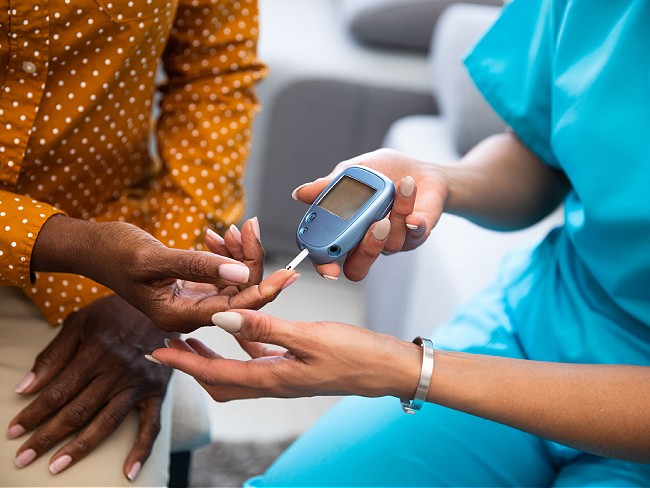
March 19, 2025
Our Colorado health plans earn national accolades
Our Medicare health plan is 1 of only 2 Medicare health plans in the U.S. …

March 7, 2025
High blood pressure during pregnancy is on the rise
The keys to preventing cardiovascular conditions during pregnancy are knowing …
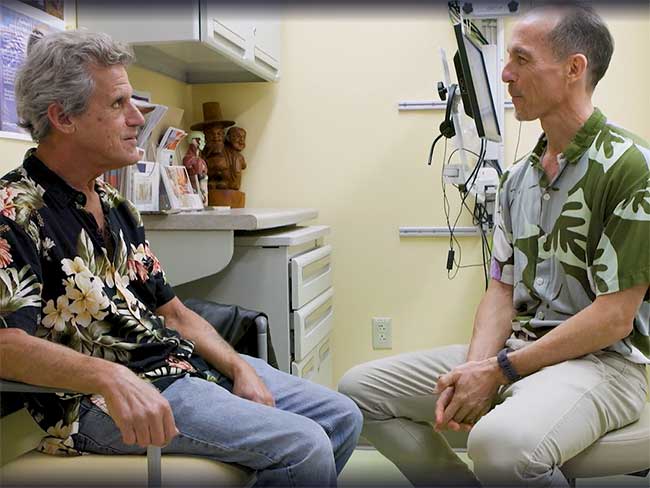
March 7, 2025
Kaiser Permanente in Hawaii cures 1,000th patient with hepatitis C
The milestone highlights its Viral Hepatitis Clinic's crucial role in addressing …

February 27, 2025
‘The heart attack that saved my life’
A sudden heart attack led Mark Twichel to seek care at Kaiser Permanente …

February 26, 2025
Colon cancer: Do you need to be screened?
If you’re age 45 or older, getting checked regularly for colorectal cancer …

February 24, 2025
Honoring extraordinary nurses
Our award-winning nurses put patients first and contribute new knowledge …

February 18, 2025
I just need a chance
Billy Cardosi spent his life putting his family and job first. Then a heart-rela …

February 14, 2025
A fulfilling life on the other side of ovarian cancer
As a wife and a mother, Autumn Gray was determined to beat cancer to be …

February 4, 2025
What is therapy, anyway?
At Kaiser Permanente, our care is personalized for each patient's mental …

January 17, 2025
Colorado health and well-being policies recognized
Denver is 1 of 7 cities to earn a CityHealth overall gold medal. Aurora …
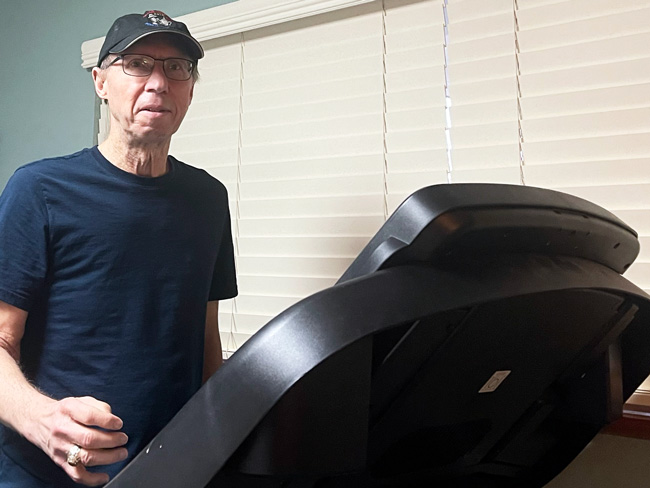
January 15, 2025
After surgery, home was where his heart was
Virtual cardiac rehabilitation offers Mike Erskine a convenient, safe way …

December 27, 2024
Our California health plans are honored with top ratings
Kaiser Permanente receives 5 out of 5 stars for overall quality of care …

December 26, 2024
How telehealth can make life easier for people with cancer
Virtual care connects cancer patients like Rob Tufel to a wide range of …

November 26, 2024
How to reduce your risk of stroke
A Kaiser Permanente doctor and researcher shares the simple changes you …

November 22, 2024
Breast cancer survivor encourages early testing
Tasha Champion shares how early testing by her oncologist at Kaiser Permanente …

November 18, 2024
The power of early detection and proactive men’s health
A father's determination to stay healthy for his 3 children led him to …
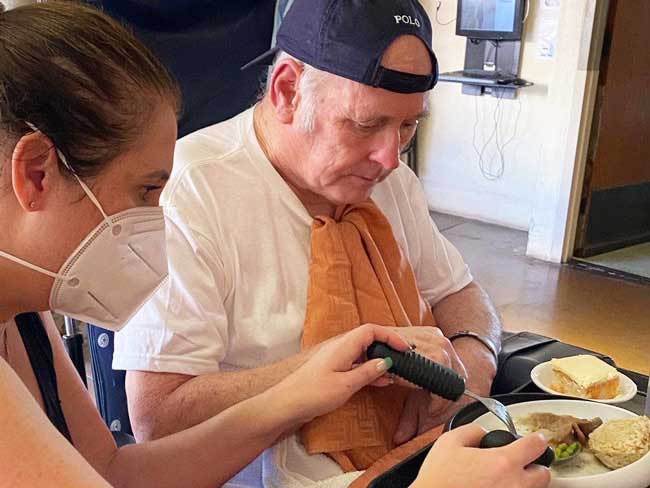
November 13, 2024
Self-care for caregivers matters: Here’s why
A sharp increase in rates of adult caregiving is taking a mental and physical …
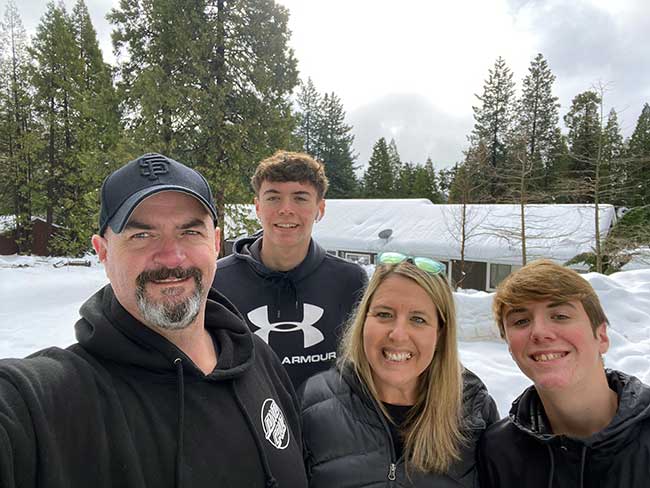
November 12, 2024
Surviving lung cancer as a nonsmoker
As a lifelong nonsmoker, Mariann Stephens was shocked to learn she had …

October 29, 2024
That’s not tennis elbow
A Kaiser Permanente physician thought he pinched a nerve during a tennis …
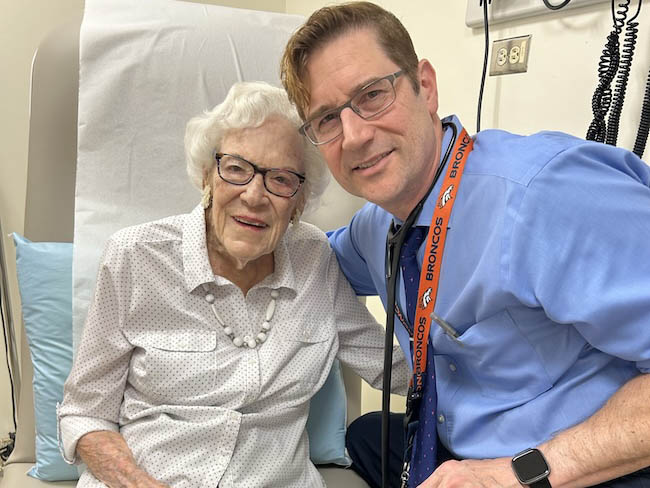
October 15, 2024
107-year-old member credits Kaiser Permanente for longevity
Bettye Garrett’s personal doctor says her healthy perspective on life’s …
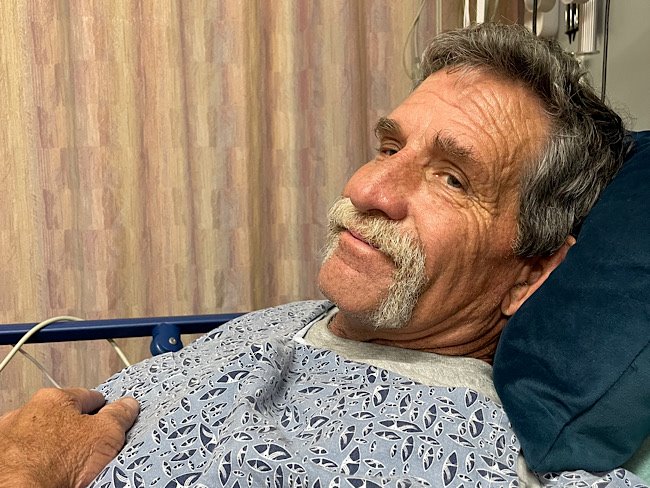
October 8, 2024
It started with a bad feeling
In August 2023, John Lynn collapsed at work. For the next year, he fought …

October 4, 2024
Teacher learns about herself and how to live with anxiety
A lifelong educator seeks behavioral health care to manage repetitive worries, …

October 1, 2024
From depression to connection: Older adult finds her way
After a long period of loneliness and isolation, Roberta Maguire gets the …

September 20, 2024
Ovarian cancer journey confirmed nursing student's calling
Miriam Gutierrez was diagnosed with late-stage ovarian cancer at age 31. …
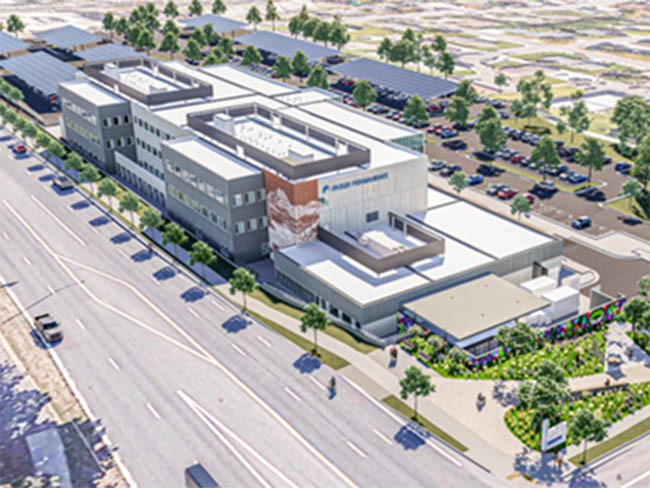
September 19, 2024
First look at new Lakewood facilities
New medical offices will enhance the health care experience for members …

September 18, 2024
More than 100 ‘Top Docs’ recognized in Washington state
Kaiser Permanente celebrates doctors and nurse practitioners recognized …

September 17, 2024
A Latina’s voice in mental health is impactful with her clients
Connecting through a shared heritage gives one therapist a unique perspective …

September 17, 2024
Playing on after 2 decades of cancer care
With the support of his health care team and nurse navigator, musician …
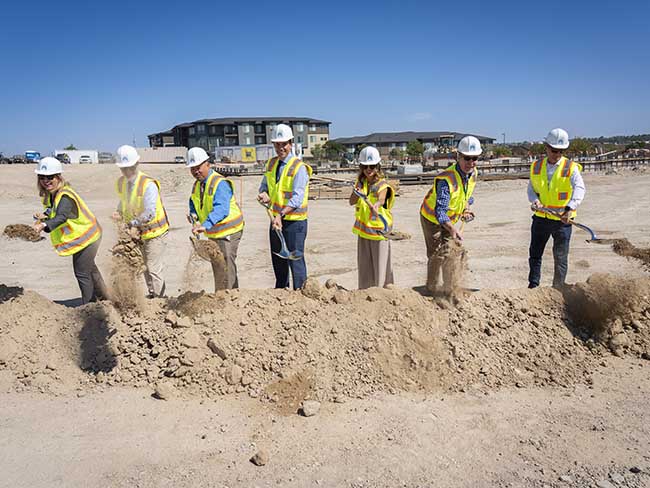
September 17, 2024
Groundbreaking at new medical offices in Pueblo
The new Pueblo North Medical Offices will replace the existing facility …

September 6, 2024
Navigating a world turned upside down after heart failure
After a life-threatening series of heart attacks at age 57, Bunnell Fockler …

August 29, 2024
After Stage 4 ovarian cancer, she’s still going strong
Donna Budway received prompt surgery followed by chemotherapy. She credits …
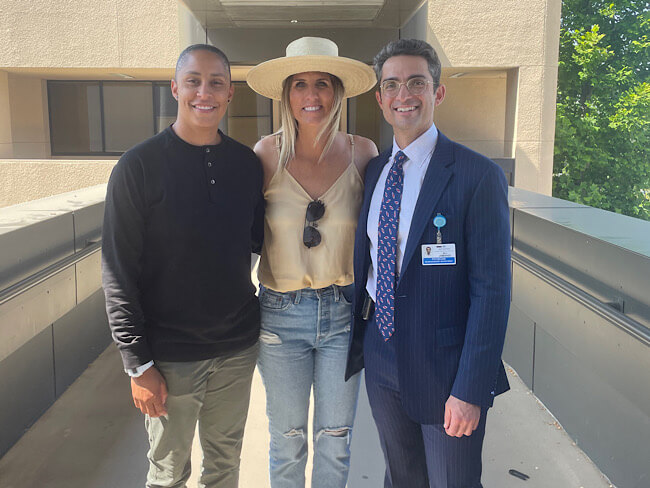
August 29, 2024
Neurosurgery and a deep, enduring doctor-patient relationship
A basketball coach’s remarkable story of undergoing brain tumor surgery …

August 28, 2024
Making breastfeeding work: A second-time mom’s journey
Support from a dedicated care team helps Tiffany Anonye breastfeed her …
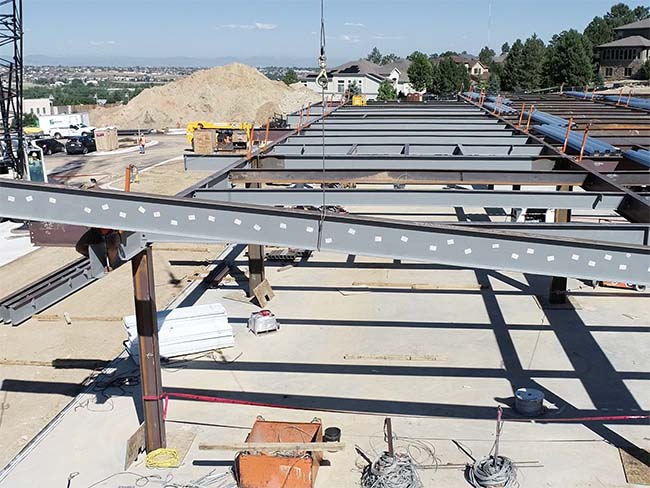
August 28, 2024
Final beams placed at Parker Medical Offices
The final steel beams for the new Kaiser Permanente Parker Medical Offices …
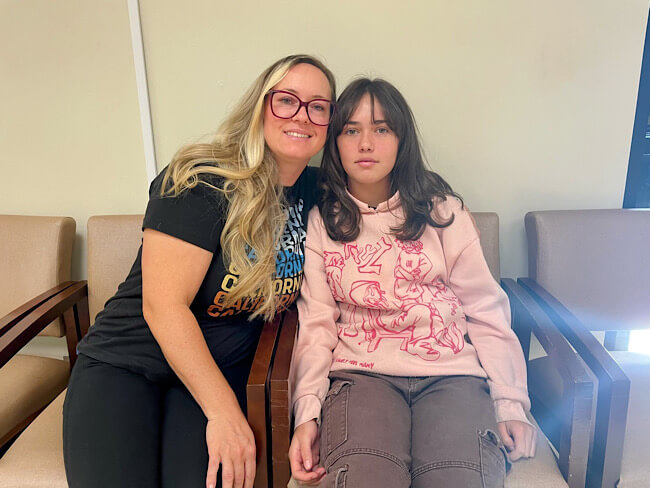
August 27, 2024
From sore throats to ice cream floats
A mother and daughter share a special bond after undergoing tonsillectomies …
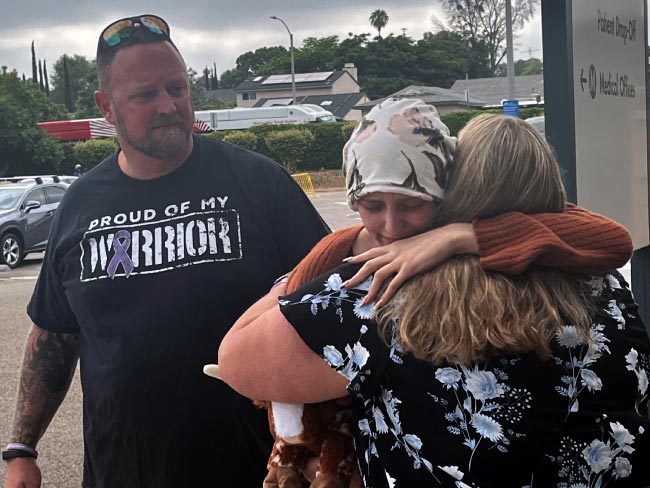
August 26, 2024
Katie's ride: Motorcycle rally a surprise for patient
Kaiser Permanente in San Diego helped plan a special send-off for Katie …

August 15, 2024
Back home one day after heart surgery
Ed Dalmasso needed an aortic valve replacement. His care team provided …

August 6, 2024
For a father with prostate cancer, knowledge is power
Harold Newman had advanced prostate cancer. Genetic testing helped expand …

August 5, 2024
Our Olympia Medical Center with a three-peat, wins silver
Readers of The Olympian voted their Kaiser Permanente location as the best …

August 1, 2024
Kaiser Permanente tops Colorado ‘Top Doctors’ list
5280 Magazine named 332 Kaiser Permanente physicians to its annual Top …

July 10, 2024
We help members lower their risk of heart attacks and strokes
A Southern California program, powered by our connected care model, is …
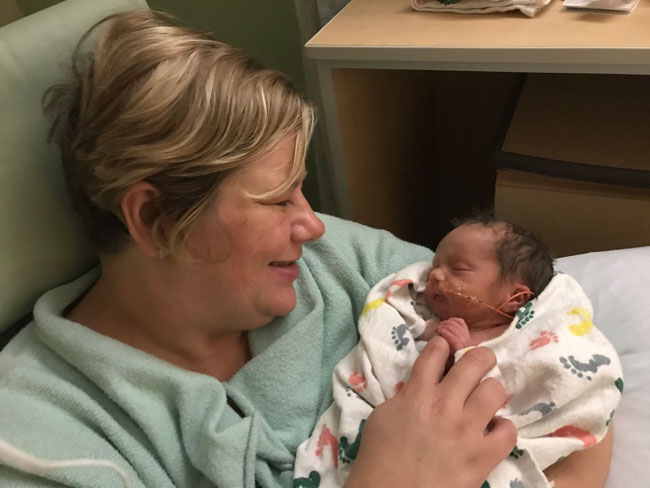
July 2, 2024
Best maternity hospitals: We have 29 of them
Our safe, high-quality, compassionate care landed us on Newsweek’s America’s …

June 25, 2024
Prompt postpartum care saves a baby’s life
When a newborn was diagnosed with meningitis, a life-threatening infection …
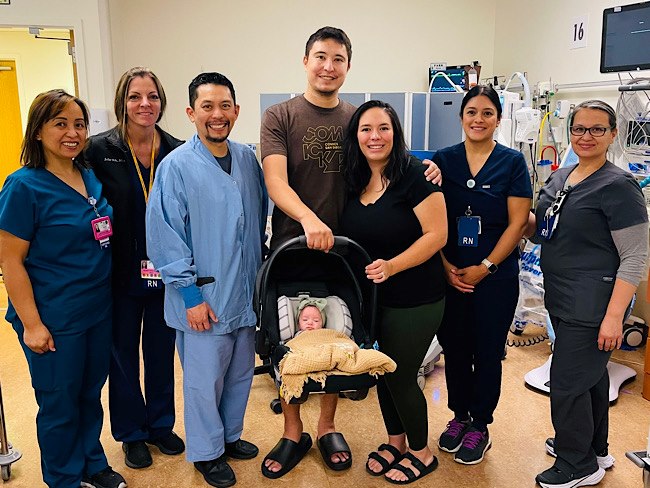
June 17, 2024
That’s a lot of babies!
Delivering multiple babies is difficult, but Kaiser Permanente care teams …

June 13, 2024
Conquered 2 cancers while climbing mountains
Chris Hogan faced kidney cancer and prostate cancer at the same time. He …

June 3, 2024
A call to ‘Connect’ for cancer prevention research
Participate in a study to help uncover the causes of cancer and how to …

May 31, 2024
Stage 4 lung cancer: A story of hope
A young father is enjoying “bonus time” with his kids thanks to new targeted …

May 21, 2024
Surviving stage 4 lung cancer with immunotherapy treatment
Patients like Carol Pitman are living longer thanks to advances in lung …

May 21, 2024
Our award-winning volunteers make communities better
Meet the winners of our 2023 David Lawrence Community Service Award. Their …

May 17, 2024
A leader in LGBTQ+ health care equality
All 39 of our participating hospitals receive top marks again for welcoming …
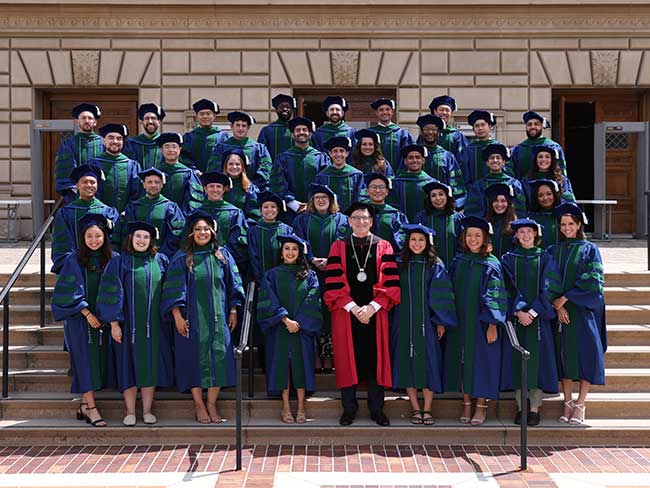
May 15, 2024
Medical school milestone
The first class graduates from the Kaiser Permanente Bernard J. Tyson School …

May 14, 2024
Recognized again for leadership in diversity and inclusion
Fair360 names Kaiser Permanente to its Top 50 Hall of Fame for the seventh …

May 10, 2024
Self-care is key for new parents
Feeling emotional or overwhelmed after a new baby’s arrival? You’re not …
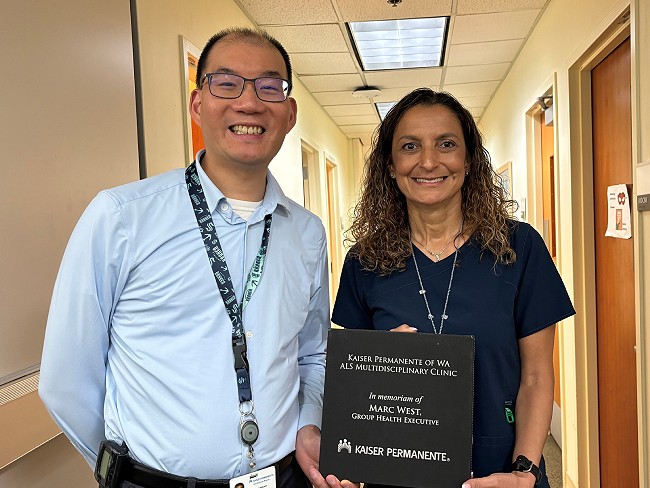
May 1, 2024
Tacoma ALS clinic recognized for high-quality care
Patients with amyotrophic lateral sclerosis, also called Lou Gehrig’s disease, …

April 10, 2024
For a new mom, talking about her worries helped her heal
One in 5 people experience depression, anxiety, or other mental health …

April 9, 2024
Denver Fire Department annual blood work screenings triple
It’s easy to put off recommended health screenings, and sometimes even …

April 8, 2024
Reducing inequity with fruits and vegetables
Black Americans experience worse health outcomes compared to other populations. …

April 8, 2024
Martin Luther King Jr.’s dream is alive at Kaiser Permanente
Greg A. Adams, chair and chief executive officer of Kaiser Permanente, …

April 1, 2024
Lynch syndrome: Managing the risk of hereditary colon cancer
Lynch syndrome is a gene mutation that increases colon cancer risk. Learn …

March 29, 2024
Faster recovery: From cardiac scare to exploring Italy
Virtual cardiac rehab helped Mike Kelly heal at home after a life-threatening …

March 20, 2024
Life after cancer: Surviving and thriving
A healthy life after cancer is possible. Learn how Kaiser Permanente helps …

March 14, 2024
Healthy kidneys support overall good health
Kaiser Permanente excels in preventing, detecting, and treating kidney …

March 14, 2024
Midwife offers personal care for mom facing complications
For Sam Beeson, having a midwife at her side during her pregnancy helped …
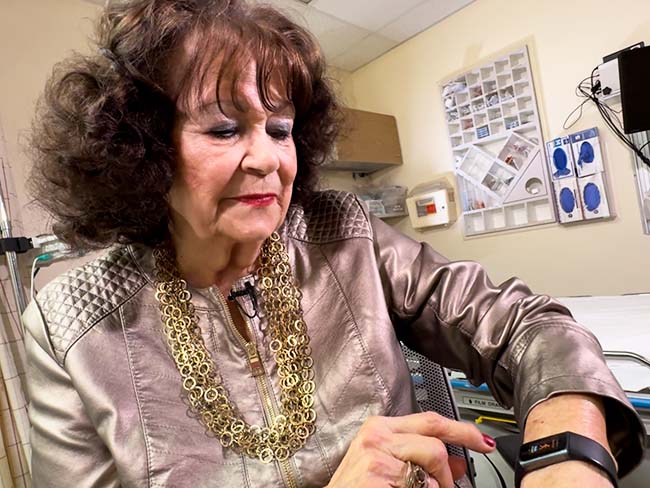
March 12, 2024
In-home recovery restores harmony to life
Colorado musician back with the band thanks to new virtual cardiac rehab …

March 6, 2024
Are you dreading the spring season?
A new Kaiser Permanente facility in Bellflower, California, makes customized …

March 5, 2024
Researchers look for ways to find pancreatic cancer early
Early detection of the disease, before it becomes advanced, will increase …

February 22, 2024
The journey of a lifetime
Care teams at Kaiser Permanente Fontana Medical Center helped Phillip Crawford …

February 21, 2024
From planning his funeral to celebrating his wedding
Gabriel Abarca had no hope for his future. Then the team at Kaiser Permanente …

February 21, 2024
Recovering at home after a double mastectomy
Innovative surgical recovery program helps breast cancer patients safely …

January 26, 2024
Retiree back in the swing of things after heart procedure
Tookie Gentilcore returns to enjoying life thanks to a quick, safe method …

January 17, 2024
How diabetes can affect your heart
People with diabetes are more likely to have heart disease.

January 17, 2024
International recognition affirms our superior care
The Kaiser Permanente South Sacramento Medical Center becomes our 11th …

January 10, 2024
‘You don’t know unless you ask them’
Kaiser Permanente’s Patient Advisory Councils help us create exceptional …

December 19, 2023
Determined to drop the weight and stop the cycle of diabetes
Following a COVID-19-related hospital stay, Robert DeLeon took charge of …
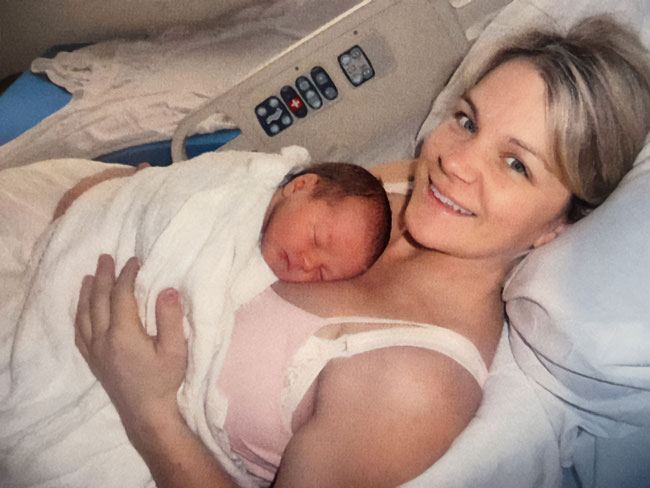
December 15, 2023
Family-centered care, through pregnancy and beyond
Members experiencing a low risk pregnancy have the option of having their …

December 11, 2023
Our health plans earn high ratings
Kaiser Permanente’s commercial and Medicare health plans are rated either …

December 6, 2023
Video prenatal visits are a boon for a busy working mom
A new care option offers a mix of in-person and virtual visits, supported …

December 6, 2023
Leaders named among health care’s most influential
Greg A. Adams; Maria Ansari, MD, FACC; and Ramin Davidoff, MD, have been …

December 1, 2023
Surviving — and thriving — after cancer
From diagnosis to recovery, David Parsons, MD, shares how screening, treatment, …
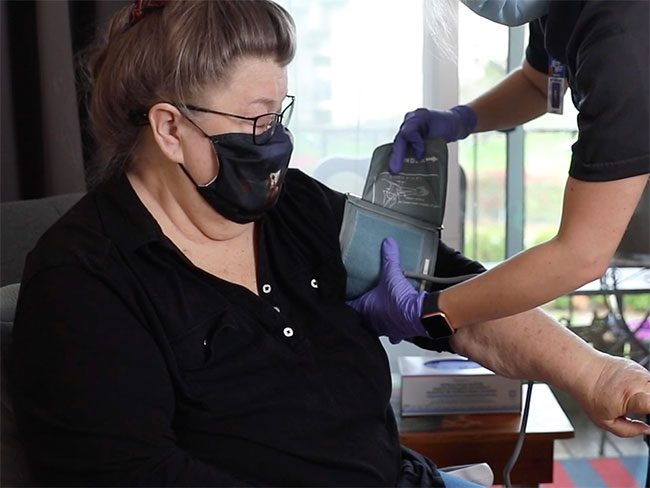
November 15, 2023
Care at home: Giving patients what they want
Our Advanced Care at Home program provides high-quality, safe care in familiar, …

October 25, 2023
Breast cancer during pregnancy: Caring for mom and baby
A team of specialists treats an expecting mother’s cancer while keeping …

October 24, 2023
Childhood anxiety: What parents need to know
A child and adolescent psychiatrist shares tips on supporting your child …

October 23, 2023
A renewed sense of purpose after surviving breast cancer
Joy Short, a Kaiser Permanente member and employee, turned her breast cancer …

October 3, 2023
Nursing excellence recognized at Fontana Medical Center
The prestigious Magnet® designation affirms the compassion, dedication, …

September 20, 2023
Healing after a heart attack
For years, serious heart attacks meant hours of weekly appointments. Now, …

September 19, 2023
Is telehealth right for you?
Members give video visits high marks — and with a few simple tips, you …

September 18, 2023
Highest-rated everywhere we serve
Our health plans are again rated among the nation’s best for overall treatment, …
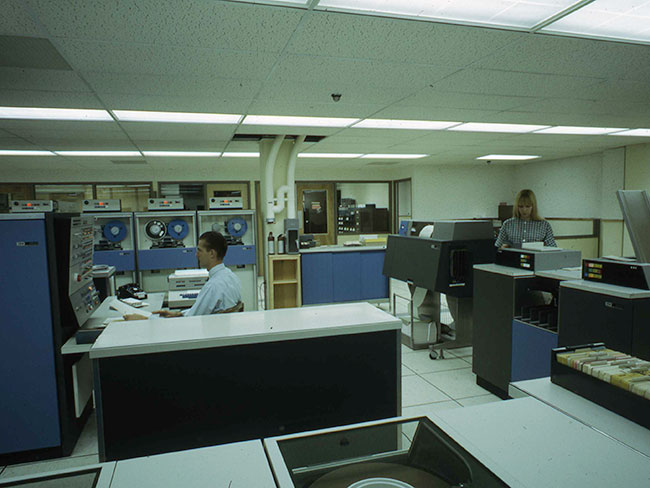
September 13, 2023
Transforming the medical record
Kaiser Permanente’s adoption of disruptive technology in the 1970s sparked …
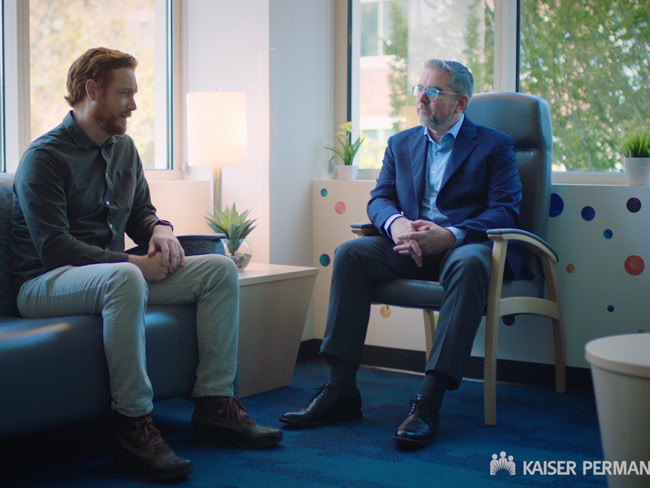
September 6, 2023
Recovery from addiction is possible
Our clinicians help patients get the care they need to move forward with …

August 17, 2023
Cancer research: The role of immunotherapy
Research and clinical trials play a vital role in advancing cancer treatment …

August 16, 2023
Cervical cancer screening: Exploring the at-home HPV test
Kaiser Permanente is at the forefront of cervical cancer research. Find …

August 14, 2023
Tips for ensuring a safe and healthy college experience
Students should study up on their care options to ace their school experience. …